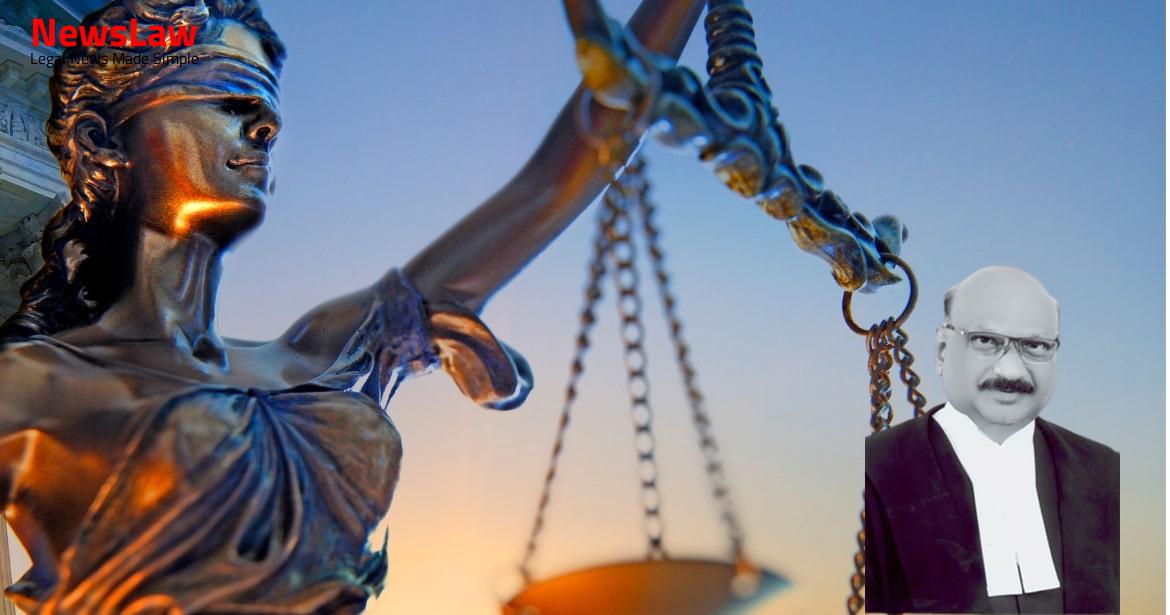In a significant legal case before the Supreme Court of India, the judgment in K Govindappa vs State of Karnataka addresses the reservation policy in single post cases. The case involves a dispute over the appointment of a Lecturer in English, with the fifth respondent claiming entitlement to the post over the appellant. The Court’s decision reaffirms the principle that reservation requires a plurality of posts, not a solitary post. Stay informed about this important legal precedent. #SupremeCourt #ReservationPolicy #LegalCase
Facts
- The appointment of the appellant was approved by the Director of Pre-University Education on 28 September 2002.
- The appellant was promoted to the post on 28 September 2002 on the basis of roster points.
- The fifth respondent challenged the approval initially by filing a writ petition before the Karnataka High Court.
- This appeal arises from a judgment of a Division Bench of the High Court of Karnataka dated 17 November 2015.
- The revision and a further review came to be dismissed by the Director of Pre-University Education on 3 May 2006 and by the Commissioner on 23 February 2007.
- The High Court dismissed the Writ Appeal filed by the appellant.
- The judgment confirmed that the appellant could not have been appointed to the post based on reservation due to the solitary post of Lecturer in English.
- The fifth respondent, who was senior to the appellant, had a valid claim and entitlement to the post of Lecturer in English.
- The fifth respondent was appointed on 2 November 1988, while the appellant was appointed on 1 December 1990.
- The appellant belongs to a Scheduled Caste.
- The post of the Lecturer in English fell vacant upon the retirement of the incumbent on 31 March 2002.
Arguments
- The post of Lecturer in English was considered a solitary post.
- Following the precedent in State of Karnataka v K Govindappa, it was determined that the post could not have been reserved.
- The view of the learned Single Judge was approved by the Division Bench on 17 November 2015.
- The decision in K Govindappa dealt with whether all posts of Lecturers constitute a cadre for reservation purposes or if a solitary post of Lecturer in History was separate.
- It was held that the post of a Lecturer in History was not part of the same cadre as all other posts of Lecturer.
- Mr. Bhat demonstrated that maintaining the roster unit-wise is necessary, especially in cases where a management runs multiple institutions.
- The management submitted a proposal to the State of Karnataka for the appointment of the appellant to a second post, but it was not accepted.
- The appellant has been working as a Lecturer in English since her appointment on 28 September 2002.
- During the appeal process, the appellant has been protected by an order of status quo since 16 February 2016.
Also Read: CRPF Act: Validity of Rule 27 for Compulsory Retirement – Case of Head Constable vs. CRPF
Analysis
- Constitution Bench approved the view that there could be no reservation in respect of a single post.
- The case in K Govindappa was considered to fall within the category of a single or isolated post within a cadre exempt from the rule of reservation.
- Disciplines with a single post were required to be treated as separate cadres, especially when limited to one college.
- Similar issue was addressed in State of Uttar Pradesh v Bharat Singh.
- Sanjeev Kumar v State of Uttar Pradesh affirmed the view of the Allahabad High Court regarding single posts and reservation.
- The circular dated 31 May 1991 predates the decision in K Govindappa case.
- The circular may be considered by the State of Karnataka for creating a supernumerary post if creating a substantive post is not possible under existing rules.
- The principle established by the Court is that reservation requires a plurality of posts, not a solitary post.
- Each single post in a specific discipline must be treated as a single post for the purpose of reservation as per Article 16(4) of the Constitution.
- The circular predates not only the K Govindappa case but also the Post Graduate Institute of Medical Education and Research case.
- Rosters for teaching and non-teaching staff should be maintained separately, not subject-wise.
- A circular issued by the State of Karnataka cannot override the decisions of the Court on reservation policies under Article 16(4)
- The High Court judgment is in line with the interpretations of the law by the Supreme Court
- No recovery should be made from the appellant for the period she has been working as a Lecturer in English since 28 September 2002
Also Read: DAMEPL vs. DMRC: Curative Petition and Arbitral Award Restoration
Decision
- Arrears of salary will not be granted for the period not worked.
- Salary to be notionally fixed for computation of future payments and retiral dues.
- The process to be completed within two months.
- State to reconsider creation of additional post based on rules.
- Fifth respondent to be considered for promotion promptly within a month.
Case Title: R.R. INAMDAR Vs. THE STATE OF KARNATAKA
Case Number: C.A. No.-001495-001495 / 2016



